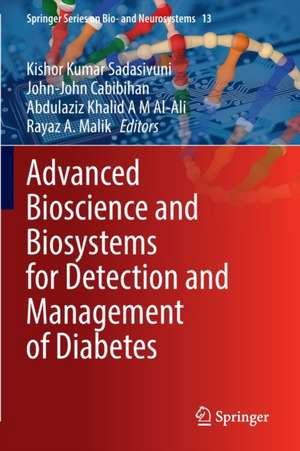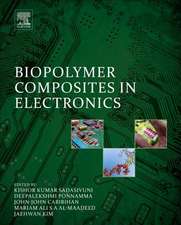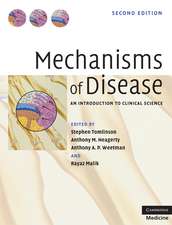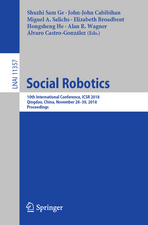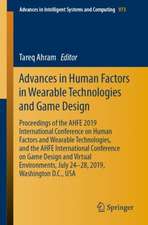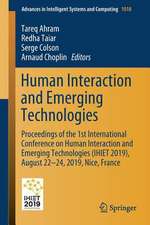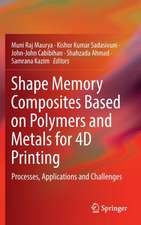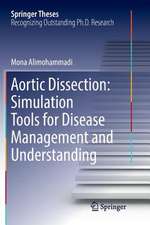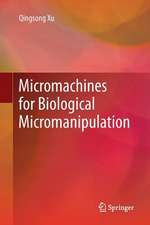Advanced Bioscience and Biosystems for Detection and Management of Diabetes: Springer Series on Bio- and Neurosystems, cartea 13
Editat de Kishor Kumar Sadasivuni, John-John Cabibihan, Abdulaziz Khalid A M Al-Ali, Rayaz A. Maliken Limba Engleză Paperback – 3 iul 2023
| Toate formatele și edițiile | Preț | Express |
|---|---|---|
| Paperback (1) | 1411.17 lei 6-8 săpt. | |
| Springer International Publishing – 3 iul 2023 | 1411.17 lei 6-8 săpt. | |
| Hardback (1) | 1418.27 lei 6-8 săpt. | |
| Springer International Publishing – 2 iul 2022 | 1418.27 lei 6-8 săpt. |
Preț: 1411.17 lei
Preț vechi: 1485.45 lei
-5% Nou
Puncte Express: 2117
Preț estimativ în valută:
270.06€ • 281.59$ • 224.44£
270.06€ • 281.59$ • 224.44£
Carte tipărită la comandă
Livrare economică 21 martie-04 aprilie
Preluare comenzi: 021 569.72.76
Specificații
ISBN-13: 9783030997304
ISBN-10: 3030997308
Ilustrații: VIII, 313 p. 150 illus., 148 illus. in color.
Dimensiuni: 155 x 235 mm
Greutate: 0.45 kg
Ediția:1st ed. 2022
Editura: Springer International Publishing
Colecția Springer
Seria Springer Series on Bio- and Neurosystems
Locul publicării:Cham, Switzerland
ISBN-10: 3030997308
Ilustrații: VIII, 313 p. 150 illus., 148 illus. in color.
Dimensiuni: 155 x 235 mm
Greutate: 0.45 kg
Ediția:1st ed. 2022
Editura: Springer International Publishing
Colecția Springer
Seria Springer Series on Bio- and Neurosystems
Locul publicării:Cham, Switzerland
Cuprins
Introduction.- Review of Emerging Approaches Utilizing Alternative Physiological Human Body Fluids in Non- or Minimally Invasive Glucose Monitoring.- Current Status of Non-invasive Diabetics Monitoring.- A New Solution for Non-invasive Glucose Measurement Based on Heart Rate Variability.- Optics Based Techniques for Monitoring Diabetics.- SPR Assisted Diabetics Detection.- Infrared and Raman Spectroscopy Assisted Diagnosis of Diabetics.- Photoacoustic Spectroscopy Mediated Non-Invasive Detection of Diabetics.- Electrical Bioimpedance Based Estimation of Diabetics.- Millimeter and Microwave Sensing Technique for Diagnosis of Diabetics.- Different Machine Learning Algorithm involved in Glucose Monitoring to Prevent Diabetes Complications and Enhanced Diabetes Mellitus Management.- The role of Artificial Intelligence in Diabetes management.- Artificial Intelligence and Machine learning for Diabetes Decision Support.- Commercial Non-Invasive Glucose Sensor Devices for Monitoring Diabetics.- Future Developments in Invasive and Non-Invasive Diabetics Monitoring.
Notă biografică
Dr. Kishor Kumar Sadasivuni is a Research Assistant Professor and the group leader of Smart Nano Solutions at Center for Advanced Materials, Qatar University. He received his Ph.D. in Materials Science and Engineering from the University of South Brittany at Lorient, France, in 2012.
John-John Cabibihan (Senior Member, IEEE) received the Ph.D. degree in bioengineering, with a specialization in biorobotics, from Scuola Superiore Sant’Anna, Pisa, Italy, in 2007. From 2008 to 2013, he was an Assistant Professor with the Electrical and Computer Engineering Department, National University of Singapore. He is currently an Associate Professor with the Department of Mechanical and Industrial Engineering, Qatar University.
Abdulaziz Al-Ali received the Ph.D. degree in machine learning from the University of Miami, FL, USA, in 2016. He is currently an Assistant Professor with the Computer Science and Engineering Department,College of Engineering, Qatar University. In addition to developing novel machine learning techniques, his research involves building predictive models for textual, image, and sensor-based data. Dr. Al-Ali’s interest remains to be in the machine learning, artificial intelligence, and data mining fields. He now takes the role of the Director of the KINDI Center for Computing Research in Qatar University.
Rayaz A. Malik, BSc. (Hons), MSc., MB ChB, PhD, FRCP graduated in Medicine from the University of Aberdeen in 1991, obtained his MRCP (London) in 1996, PhD from the University of Manchester in 1997 and was elected to become a fellow of the Royal College of Physicians in 2007. He was appointed as Consultant Physician and Senior Lecturer in 2001 and as Professor of Medicine and Consultant Physician in 2008 in Central Manchester University Teaching Hospitals and the University of Manchester. In 2014, he was appointed as Professor of Medicine at Weill Cornell Medicineand remains an honorary Professor of Medicine at the University of Manchester and visiting Professor of Medicine at Manchester Metropolitan University. He was appointed as the Organizational Official in November 2016 and as the Assistant Dean for Clinical Research at Weill Cornell Medicine-Qatar in February 2019. His research focuses on the pathogenesis, assessment and treatment of diabetic and other peripheral neuropathies and central neurodegenerative disorders.
John-John Cabibihan (Senior Member, IEEE) received the Ph.D. degree in bioengineering, with a specialization in biorobotics, from Scuola Superiore Sant’Anna, Pisa, Italy, in 2007. From 2008 to 2013, he was an Assistant Professor with the Electrical and Computer Engineering Department, National University of Singapore. He is currently an Associate Professor with the Department of Mechanical and Industrial Engineering, Qatar University.
Abdulaziz Al-Ali received the Ph.D. degree in machine learning from the University of Miami, FL, USA, in 2016. He is currently an Assistant Professor with the Computer Science and Engineering Department,College of Engineering, Qatar University. In addition to developing novel machine learning techniques, his research involves building predictive models for textual, image, and sensor-based data. Dr. Al-Ali’s interest remains to be in the machine learning, artificial intelligence, and data mining fields. He now takes the role of the Director of the KINDI Center for Computing Research in Qatar University.
Rayaz A. Malik, BSc. (Hons), MSc., MB ChB, PhD, FRCP graduated in Medicine from the University of Aberdeen in 1991, obtained his MRCP (London) in 1996, PhD from the University of Manchester in 1997 and was elected to become a fellow of the Royal College of Physicians in 2007. He was appointed as Consultant Physician and Senior Lecturer in 2001 and as Professor of Medicine and Consultant Physician in 2008 in Central Manchester University Teaching Hospitals and the University of Manchester. In 2014, he was appointed as Professor of Medicine at Weill Cornell Medicineand remains an honorary Professor of Medicine at the University of Manchester and visiting Professor of Medicine at Manchester Metropolitan University. He was appointed as the Organizational Official in November 2016 and as the Assistant Dean for Clinical Research at Weill Cornell Medicine-Qatar in February 2019. His research focuses on the pathogenesis, assessment and treatment of diabetic and other peripheral neuropathies and central neurodegenerative disorders.
Textul de pe ultima copertă
This book covers the medical condition of diabetic patients, their early symptoms and methods conventionally used for diagnosing and monitoring diabetes. It describes various techniques and technologies used for diabetes detection. The content is built upon moving from regressive technology (invasive) and adapting new-age pain-free technologies (non-invasive), machine learning and artificial intelligence for diabetes monitoring and management. This book details all the popular technologies used in the health care and medical fields for diabetic patients. An entire chapter is dedicated to how the future of this field will be shaping up and the challenges remaining to be conquered. Finally, it shows artificial intelligence and predictions, which can be beneficial for the early detection, dose monitoring and surveillance for patients suffering from diabetes
Caracteristici
Discusses the causes and types of diabetes Covers the principle and methodology behind different types of techniques to treat diabetes Highlights the importance of artificial intelligence on the early diagnosis of diabetes
